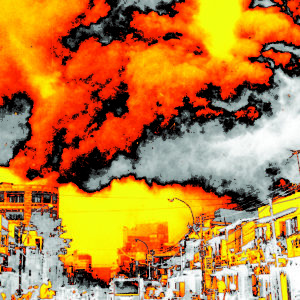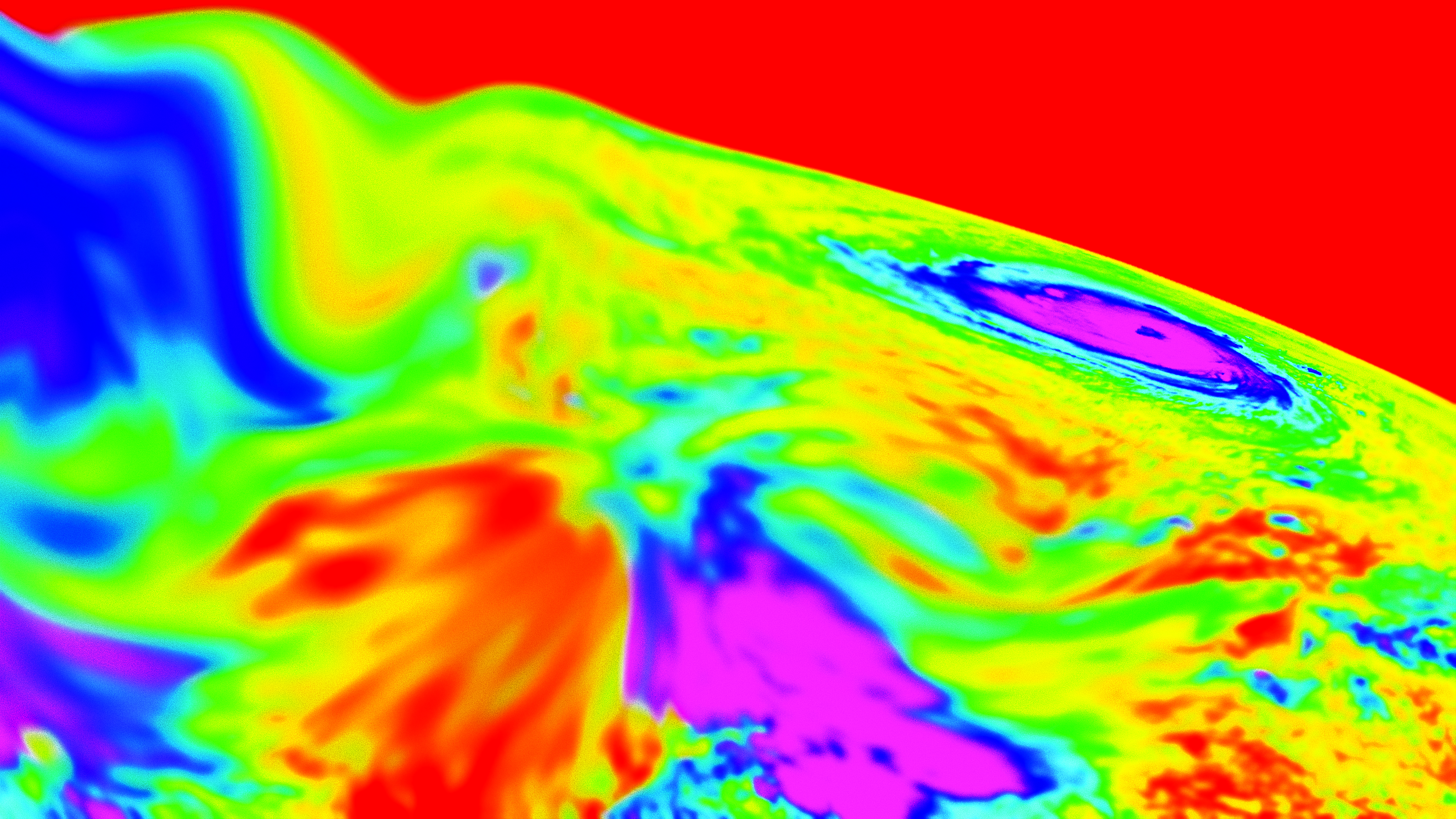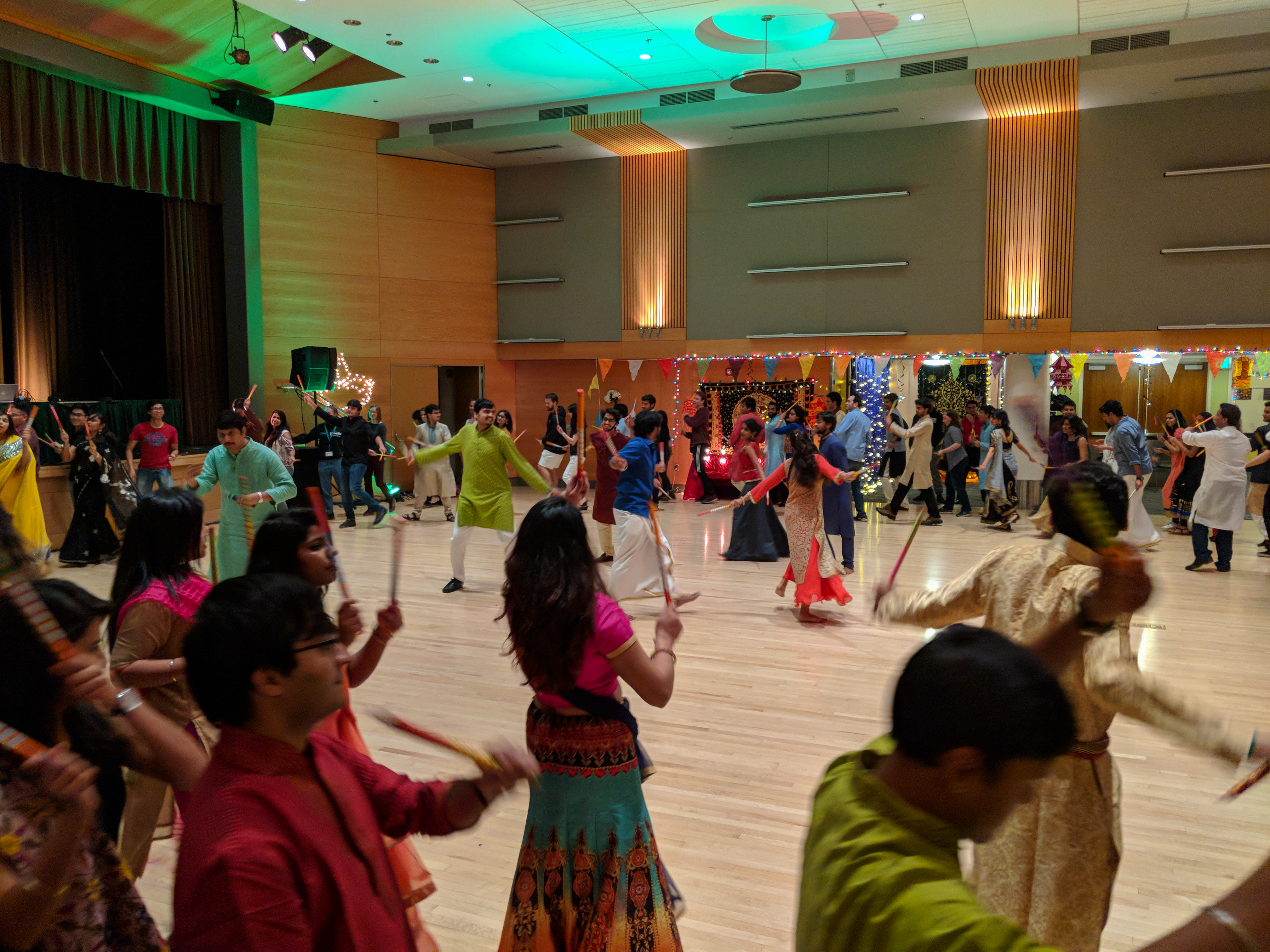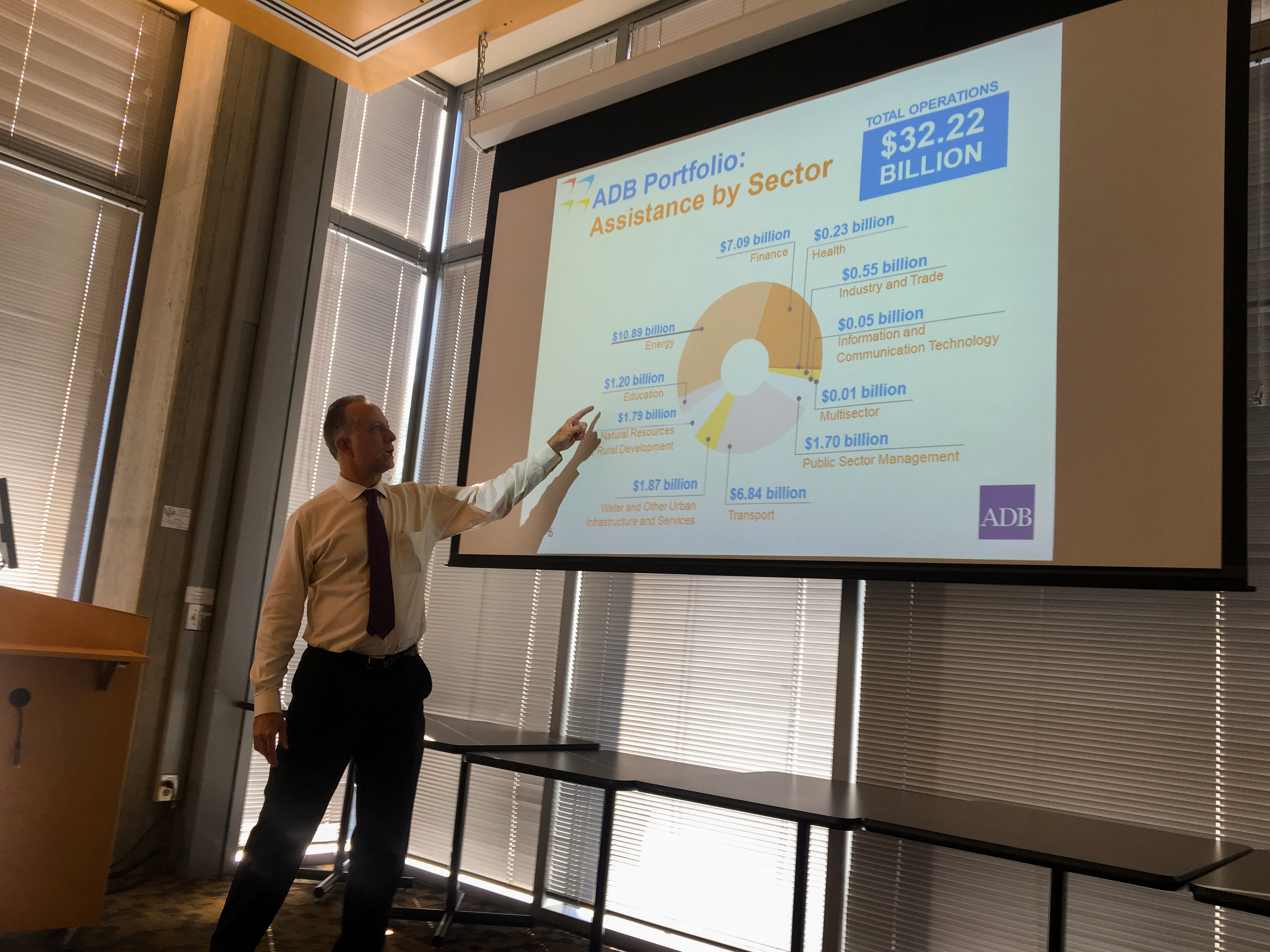Similar to Hurricane Katrina, Hurricane Florence has disproportionately impacted disenfranchised communities, and natural disasters will continue to be more destructive as climate change worsens.
On Sept. 10, evacuations in the Carolinas were ordered in response to category one Hurricane Florence. The storm, at one point being four times larger than Tennessee, caused massive flooding which impacted nearly 5 million individuals upon its arrival to the mainland.
Human activities have exacerbated Hurricane Florence due to CO2 emissions from vehicles and excess carbon released through burning coal. A recent study from Stony Brook University, “The Human Influence Hurricane Florence,” found humans are likely responsible for over a 50 percent increase in rainfall in the Carolinas during Hurricane Florence.
“What we do know about hurricanes and climate change is that the probability of large and very wet hurricanes will likely increase as the climate warms,” said Paul Loikith, a professor of geology at Portland State.
Although Hurricane Florence was listed as a category one hurricane, it’s still considered one of the more destructive natural disasters. “What made Hurricane Florence so impactful was that it slowed down and nearly stalled around the time that it made landfall, so the heavy rains that accompany any hurricane continued to affect the same places for several days. This resulted in severe flooding.”
“Dangerous climate change is here now,” Michael Wehner, a senior staff scientist at the Lawrence Berkeley National Laboratory and researcher on human impact on Florence, told Business Insider. Local economies hurt alongside climate refugees forced to leave their flooding homes to flee to safer grounds. Hurricane Florence victims are some of the most vulnerable groups in the United States, such as minority groups, impoverished communities and geographically vulnerable individuals.

Those suffering from natural disasters like Hurricane Florence are experiencing climate inequality disproportionately, including prison inmates, low-income communities and even animals.
Low-income communities
Climate change relates to gender, race and class in the same way colonization does. When we decide to value certain groups’ safety above others in times of climate catastrophes, we participate in modern day colonialism. Those who cannot afford alternative housing, food sources or transportation to safety are the individuals whose lives are most at risk. Homes destroyed in the wake of Hurricane Florence leave families without shelter. Food shortages, power outages and submerged roads leave already vulnerable people defenseless. These are immediate threats to safety, but now that the storm has subsided, disenfranchised communities are faced with serious, long-term dangers.
In North Carolina, the poorest communities in the state surround at-risk animal agriculture farms, with infrastructure unable to support the hurricane’s weather damage. Manure is overflowing out of hog lagoons, and livestock carcasses litter the surrounding areas. The longer waste takes to degrade, the more dangerous fluids, gases and toxic chemical compounds will get. Another source of hazardous waste in low-income communities in North Carolina come from coal ash disposal sites. The collapse of these at-risk sites will lead to exposure of heavy metals and radioactive materials which can lead to cancer and neurological damage.
“It’s like so many other issues; the people with the least to begin with are the ones that will suffer the most,” said Marlene Howell, a senior instructor in the School of Gender, Race, and Nations. “When [vulnerable individuals] lose something, they are more likely to lose everything they have.”
A disproportionate amount of minority groups live in low income communities inland from the coast, where flooding has occurred, according to interactive maps by Direct Relief.
South Carolina Prison Inmates
In South Carolina, 650 prison inmates have been left behind. After the National Hurricane Center officials ordered evacuations expecting potentially “life-threatening” rainfall, the state decided against evacuating the MacDougall Correctional Institute. This isn’t the first time: South Carolina hasn’t evacuated any of its prisons since 1999 in response to dangerous conditions. Last year, Houston left inmates at the mercy of Hurricane Harvey, leading to food shortages, sewage flooding and no drinking water, and many fearing for their lives. In 2006, Hurricane Katrina left unevacuated prison inmates in the same circumstances, with more than 500 people unaccounted for.
“We’re not going to gamble with the lives of the people of South Carolina. Not one,” said South Carolina Governor Henry McMaster in a news conference. However, despite the risks, forcing human beings to stay in known dangerous situations is a clear violation of basic human rights, more specifically, the right to life.
“Climate change has a disproportionate impact on people experiencing incarceration because…they are seen as less than human,” said Professor Deborah Smith Arthur, former defense attorney. “They are asked to put their lives on the line in fighting wildfires for $1 an hour [and] are used as cheap labor for cleanup after disasters. We must begin to understand that the people we incarcerate are human and deserving of care and human rights.”
“We must begin to understand that the people we incarcerate are human and deserving of care and human rights”
Prof. Deborah Smith Arthur
Animals
Animals are often the silent sufferers of natural disasters. In the case of Hurricane Florence, millions of farm animals have been left to perish in the hurricane when farmers failed to evacuate livestock. 3.4 million chickens and turkeys and 5,500 hogs make up the death toll, as well as euthanized, unrescued dogs and cats in shelters, migrating birds and loggerhead sea turtles. Farmers are also hurting, with more than $1 billion lost in crops and livestock for this year.
Animals are seen as commodities in the agriculture system and therefore are not protected during disasters. Over the years, Hurricane Matthew, Hurricane Harvey and Hurricane Floyd led to countless animal deaths around the country, solidifying a pattern: one where history continues to repeat itself.
What can we do?
Hurricane Florence is part of a bigger problem. “People who are most responsible for the climate crisis have to do more, have to pay their fair share,” said Naomi Klein in an interview with Street Roots last year.
To make matters worse, the U.S. government seems to be indifferent. The Trump administration recently transferred $10 million from the Federal Emergency Management Agency and instead gave it to Immigration and Customs Enforcement. This is money that could have saved lives.
Positive change and steps in the right direction are being taken at the local level. In Oregon, we can look to Climate Solutions in the Pacific Northwest, which focuses on clean energy and air quality. Stop Oregon Litter and Vandalism is another organization with a mission to “Bring Oregonians together to improve our environment and build a legacy of stewardship.” BARK is an organization that takes a more radical approach in protecting the Mt. Hood National Forest and local and cultural communities. Organizing People, Activating Leaders stands up for environmental justice and focuses on addressing climate change through a human rights lens. “Environmental injustice comes from systematic, historical discrimination, displacement, violence, and exploitation,” states OPAL.
“Being a part of a marginalized community, being able to access these spaces, and being able to make community is amazing and so profound,” said Darrow Omar, who is completing a fellowship with OPAL this year and works in the office of Gender, Race, and Nations at PSU. “It really shapes how you view the systems we are living in.”
Recently in Portland, community members and organizations participated in a rally focusing on climate change and environmental justice. The rally acknowledged another climate crisis: Rising waters are putting the Marshall Islands at risk.
“Justice is about seeing the humanity in the most marginalized peoples, and honoring their humanity in a way that acknowledges the impact of environmental degradation,” said Howell.
We all have limitations to what we can contribute. We may not be able to go to every meeting or rally, but we can all stay informed. We can all contact members of Congress. We can all show up for our neighbors in times of crisis in the ways that work for all of us.
We all have a responsibility to stand up for climate justice.
I am at PSU pursuing an art history major and am minoring in Gender, Sexuality and Queer Studies and Design Management. I took on the role of opinion editor in summer 2018. When I started writing for the opinion section last year as a contributor, I was looking to learn about journalism and media; I can say I definitely have. As an editor, I focus on creating environments in which writers and readers can connect and engage in productive conversations exploring new points of view.





